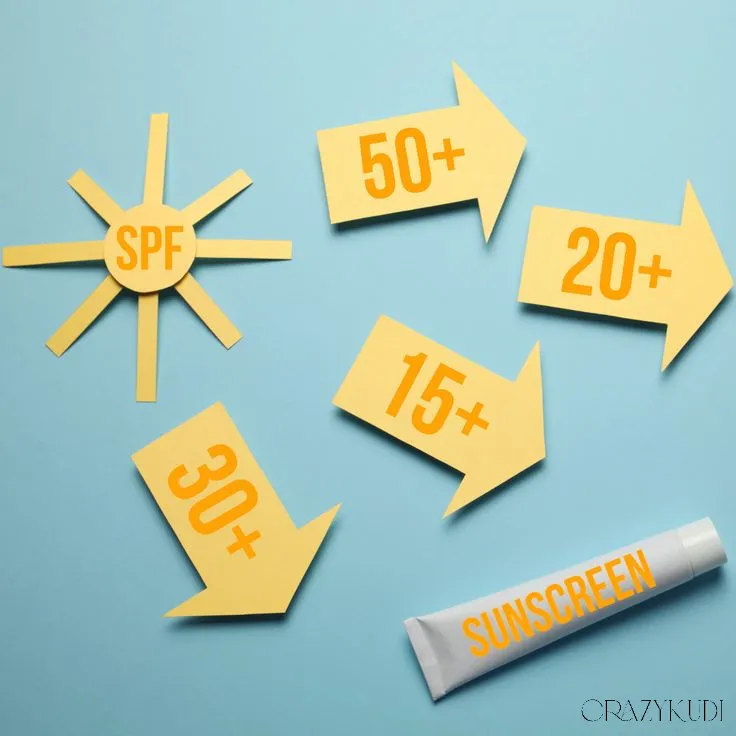When it comes to skincare, sun protection is one of the most important steps, and one that is often overlooked. You’ve likely heard the term SPF on countless sunscreen bottles, but do you really understand what it means and why it’s so important for your skin’s health? As a dermatologist, I’m here to break down everything you need to know about Sun Protection Factor (SPF) and why protecting your skin from harmful UV rays is vital for maintaining a youthful, healthy complexion.
What is Sun Protection Factor (SPF)?
Sun Protection Factor (SPF) is a measure of how well a sunscreen will protect your skin from ultraviolet B (UVB) radiation, the type of UV radiation that causes sunburn and plays a major role in the development of skin cancer. In simple terms, SPF indicates how much longer you can stay in the sun without getting sunburned while using the sunscreen, compared to not using any sunscreen at all.
For example, if your skin would normally burn after 10 minutes of sun exposure, an SPF 30 sunscreen would protect you for 30 times longer, or 300 minutes (5 hours), before you would burn. However, it’s important to note that this is a general estimate and can vary based on factors like sweating, swimming, or towel-drying.
How Does SPF Work?
SPF works by forming a protective barrier on the skin that absorbs or reflects UV rays, preventing them from penetrating the skin’s surface. Sunscreens containing SPF work in two ways:
- Chemical (Organic) Filters: These absorb UV rays and convert them into heat, which is then released from the skin.
- Physical (Mineral) Filters: These create a barrier that reflects UV rays, preventing them from reaching the skin. Common physical filters include zinc oxide and titanium dioxide.
Expert Tip:
SPF protects specifically against UVB rays, which are responsible for sunburns, but it does not provide complete protection against UVA rays, which are responsible for premature aging and some forms of skin cancer. To get broad-spectrum protection, look for sunscreens labeled as "broad-spectrum", which protect against both UVA and UVB rays.
Also read: What is Vitamin C for Skin? The Complete Guide to Vitamin C Skincare
Why is SPF Important for Your Skin?
- Prevents Sunburn and Skin Damage
The most obvious reason to use SPF is to prevent sunburn. Sunburn is not just painful but also damages the skin’s outer layers, leading to skin peeling and increased sensitivity. Sunburned skin is more vulnerable to skin aging and pigmentation problems.
- Reduces Risk of Skin Cancer
Prolonged exposure to UV rays increases the risk of developing skin cancer, including melanoma, the deadliest form of skin cancer. Regular use of SPF has been shown to significantly reduce the risk of skin cancer by protecting the skin from harmful UV radiation.
- Prevents Premature Aging
UV radiation accelerates the breakdown of collagen and elastin in the skin, which leads to fine lines, wrinkles, and loss of skin firmness. This process, known as photoaging, can be slowed down by daily use of sunscreen with adequate SPF. By blocking UV rays, SPF helps maintain youthful, healthy skin for longer.
- Reduces Hyperpigmentation and Dark Spots
UV exposure is one of the leading causes of hyperpigmentation and dark spots on the skin. Conditions such as melasma and sun spots are often exacerbated by sun exposure, but using a broad-spectrum sunscreen can help prevent the formation of these skin discolorations.
- Protects Sensitive Skin
If you have sensitive skin or are prone to conditions like rosacea, eczema, or acne, using SPF is crucial to prevent flare-ups triggered by UV exposure. Sunscreen provides a protective layer, reducing the irritation and inflammation caused by the sun.

How to Choose the Right SPF for Your Skin
When selecting a sunscreen, the SPF level you choose depends on several factors, including your skin type, your activity level, and how long you'll be outdoors.
- SPF 15-30: This is suitable for daily, moderate sun exposure, such as when you're running errands or spending time outdoors for a short period. SPF 30 blocks about 97% of UVB rays.
- SPF 50: For extended periods in the sun, such as during a day at the beach or a hiking trip, SPF 50 offers 98% protection against UVB rays and is ideal for individuals with fair skin or those prone to burning.
- SPF 50+: This provides the maximum protection available for people with very fair skin, a history of skin cancer, or those spending long hours outdoors. It offers more than 98% protection against UVB rays.
Expert Tip:
Higher SPF values provide slightly more protection, but no sunscreen can block 100% of UV rays. Therefore, reapplication is essential, especially after swimming, sweating, or towel-drying.
Also read: How to Use Vitamin C Serum at Night for Glowing Skin: A Step-by-Step Guide
How to Apply SPF Correctly
To ensure maximum protection, apply sunscreen properly:
- Apply Generously: Most people don’t apply enough sunscreen. You should use about 1 ounce (a shot glass full) to cover your body and at least 1 teaspoon for your face.
- Reapply Every Two Hours: Even if the sunscreen is water-resistant, it’s important to reapply every two hours and immediately after swimming or heavy sweating.
- Apply Before Sun Exposure: Sunscreen needs time to absorb into your skin and take effect, so apply it at least 15–30 minutes before going outdoors.
Final Thoughts
Sun Protection Factor (SPF) is a critical component of any skincare routine, no matter your skin type or complexion. SPF helps protect your skin from harmful UV radiation, preventing sunburn, premature aging, pigmentation, and most importantly, skin cancer. Make SPF a non-negotiable part of your daily routine and choose a broad-spectrum sunscreen with an appropriate SPF level for your lifestyle. Remember, consistent sun protection is key to maintaining healthy, youthful skin for years to come.

